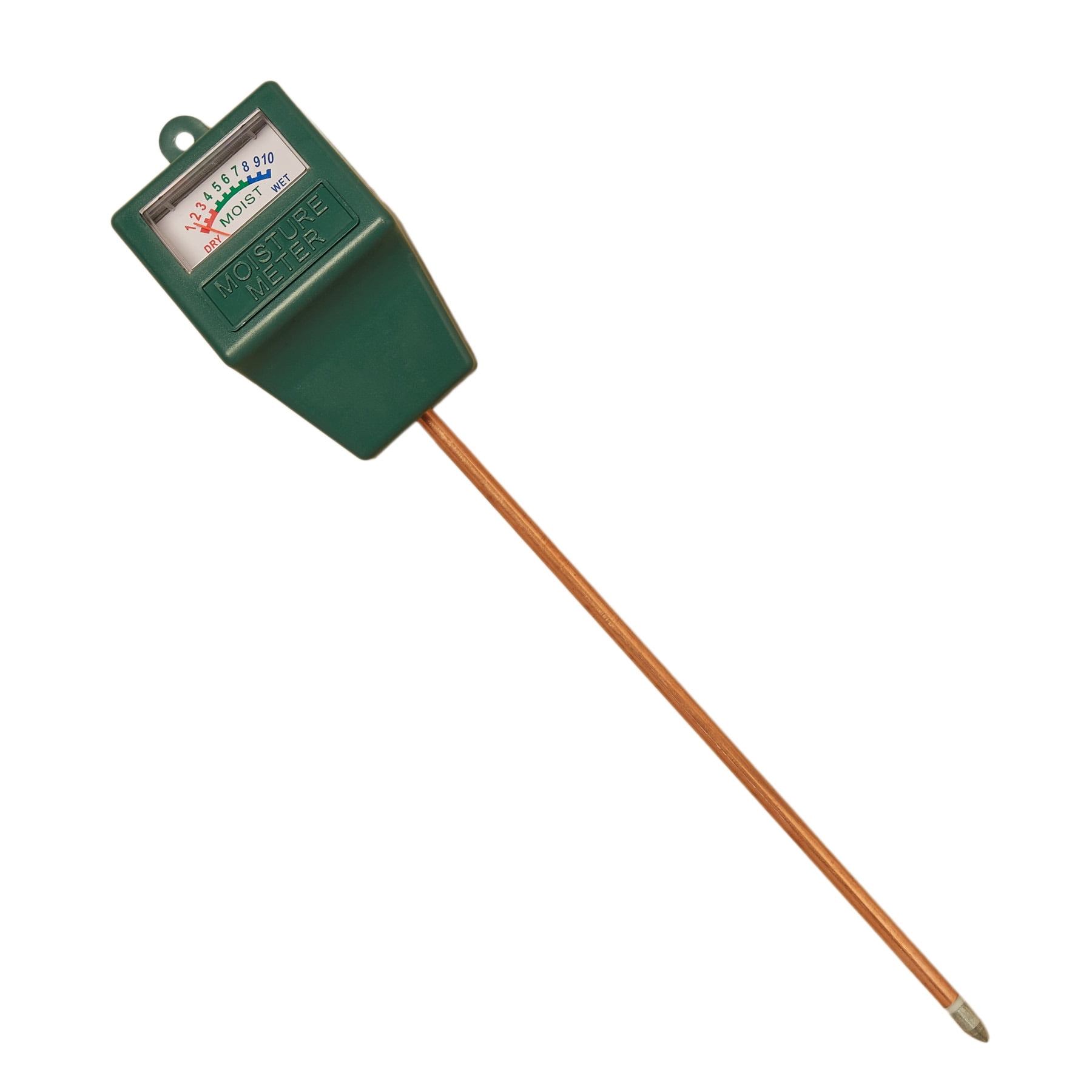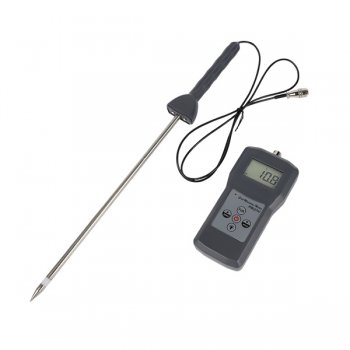The Ultimate Overview to Moisture Meters: A Comprehensive Review and How They Can Conserve You Money
In the realm of structure upkeep, building, and various sectors, the importance of precisely determining dampness levels can not be overemphasized. Moisture meters work as indispensable devices in detecting and checking moisture content in products, assisting in avoiding pricey problems and making certain the quality of products. Comprehending the nuances of various sorts of wetness meters, their applications, and the potential cost-saving advantages they supply can be a game-changer for organizations and professionals alike. Finding exactly how these tools can not only improve processes yet also add to economic savings is a journey worth starting.
Types of Moisture Meters
Different kinds of dampness meters are available for various applications in different sectors. One common type is the pin-type dampness meter, which measures the electrical resistance between two pins put into a product. This kind is appropriate for timber, drywall, and various other building materials. Pinless wetness meters, on the other hand, usage electromagnetic sensing unit plates to check a larger location without causing damages to the material's surface. These meters are optimal for promptly analyzing wetness levels in huge locations such as wall surfaces and floors.
Moreover, there are also specialty wetness meters developed for certain products like dirt, hay, or grain. These meters supply exact wetness readings tailored to the one-of-a-kind homes of the material being examined. Infrared wetness meters determine the thermal residential properties of a product to identify its moisture content non-invasively, making them beneficial for applications where pin or pinless meters might not appropriate. Understanding the different kinds of dampness meters available can help sectors pick the most suitable tool for their certain dampness dimension requirements.

Advantages of Utilizing Moisture Meters

Moreover, using moisture meters can lead to raised energy performance. In farming setups, wetness meters play a vital duty in enhancing crop yields by enabling farmers to monitor dirt dampness levels and make educated watering decisions.
How to Choose the Right Moisture Meter
Selecting the appropriate dampness meter entails thinking about vital variables such as material compatibility, measurement variety, and calibration accuracy. When choosing a dampness meter, it's necessary to ensure that the meter is suitable for the specific material you will be screening. Different products have differing electric buildings that can affect moisture analyses, so choosing a meter developed for your material is critical for exact outcomes. In addition, consider the More Bonuses measurement variety of the moisture meter. Guarantee that the meter can detect moisture degrees within the variety needed for your applications. Calibration precision is one more critical factor to remember (Moisture Meter). Choose for a wetness meter with reputable calibration to guarantee constant and exact analyses. Some meters might require routine calibration changes, so understanding the calibration process is essential. By carefully assessing these factors, you can choose a moisture meter that meets your demands and provides exact wetness measurements for your projects.
Correct Techniques for Moisture Meter Usage
To guarantee precise wetness analyses and optimize the efficiency of a wetness meter, utilizing appropriate strategies is important. When utilizing a pin-type dampness meter, put the pins or probes right into the material being evaluated up until they make complete get in touch with. Ensure the pins are perpendicular to the surface area to get the most accurate reading. For pinless wetness meters, hold the device flat versus the material and relocate slowly to cover the whole area for an ordinary reading. It's important to adjust the moisture meter according to the product being evaluated to enhance accuracy. Take multiple analyses across the surface area and typical them out for an extra trusted result. In addition, make certain that the material being checked is adjusted to the environment to protect against skewed analyses. Normal upkeep of the wetness meter, such as cleaning up the pins or sensor, is additionally essential to make sure consistent and accurate analyses. By adhering to these correct strategies, users can rely upon their moisture meter to give reliable dampness levels, assisting in preventing expensive damage or making certain top quality in numerous applications.

Price Cost Savings Via Moisture Meter Applications
How can the calculated utilization of dampness meters cause considerable expense savings across different markets? Moisture meters next page play an essential duty in cost financial savings by preventing prospective damage and making certain top quality control in various fields. In the farming market, moisture meters help in identifying the optimum time for gathering crops, protecting against excess or over-drying moisture that can affect the end product's top quality. This precise surveillance aids farmers stay clear of unneeded losses and maximize their return.

Moreover, in the food handling industry, wetness meters are essential for keeping track of product quality and making sure compliance with safety guidelines. By precisely determining wetness material in foodstuff, producers can protect against wasting, keep quality, and decrease waste, causing considerable price financial savings. On the whole, the tactical application of dampness meters is an important financial investment that can lead to significant cost reductions and improved performance across different industries.
Verdict
Finally, dampness meters are useful devices for discovering and measuring moisture degrees in numerous materials. By making use of the best dampness meter and complying with proper methods, users can properly avoid expensive problems brought on by excess wetness. Spending in a quality moisture meter can result in considerable price financial savings over time by recognizing prospective problems at an early stage and enabling prompt removal. Eventually, moisture meters are necessary tools for preserving the integrity and long life of products and structures.
Moisture meters offer as crucial tools in finding and monitoring moisture material in materials, aiding in preventing costly problems and ensuring the quality of products. Infrared this page dampness meters determine the thermal residential or commercial properties of a product to identify its wetness material non-invasively, making them beneficial for applications where pin or pinless meters might not be ideal.Dampness meters use invaluable benefits in accurately analyzing and keeping track of moisture levels in diverse materials and settings. In agricultural settings, wetness meters play an important duty in enhancing crop yields by enabling farmers to keep an eye on soil dampness levels and make educated irrigation choices.In verdict, moisture meters are useful devices for gauging and discovering wetness degrees in different products.
 Dylan and Cole Sprouse Then & Now!
Dylan and Cole Sprouse Then & Now! Freddie Prinze Jr. Then & Now!
Freddie Prinze Jr. Then & Now! Burke Ramsey Then & Now!
Burke Ramsey Then & Now! Pauley Perrette Then & Now!
Pauley Perrette Then & Now! Atticus Shaffer Then & Now!
Atticus Shaffer Then & Now!